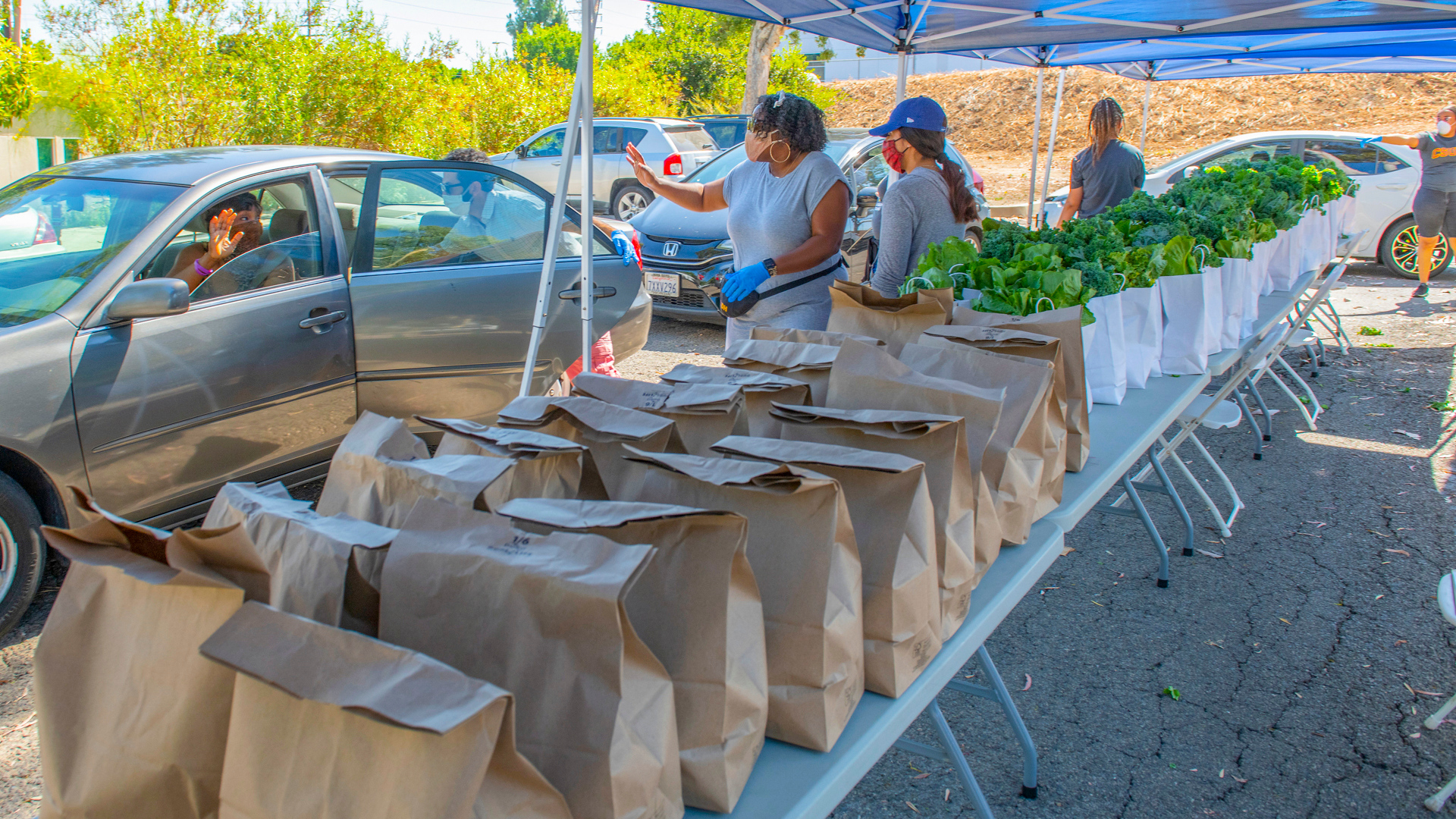Basic Needs and Sustainability offices have held events to help students combat food insecurity. Photo courtesy of CSUDH.
By Brandon Ramos, Staff Reporter.
The Toro Food Pantry, which in previous years offered canned food, fresh fruit, and basic toiletries to all California State University, Dominguez Hills students, is currently going through a transformational period. The pantry, which never had a set physical location on campus for students to seek a quick snack or produce for themselves, has slowed down its food distribution. Due to the uncertainty of the pandemic and other administrative decisions, a food pantry location has not been able to be set up on campus for all students to use.
Throughout Los Angeles, food insecurity is a rising problem. According to a 2021 the University of Southern California study, one in three LA households experienced food insecurity disruptions in eating because of a lack of money or resources. According to a 2019 CSUDH study (61.3%), two out of three students felt food insecure, and with the pandemic, this number has possibly increased as it has throughout LA County.
According to a representative from the Office of Basic Needs, the Toro Food pantry is currently being re-operated and is expected to be opened with a set physical location inside of the new Health, Wellness, and Recreation Center. The planned opening is scheduled for Fall 2026.
Thankfully, through this uncertainty, there have been resources and cultural centers on campus available to help students and those in need of food, whether they are looking for a snack to munch on or canned goods to take with them for use in the near future.
The Latinx Cultural Resource Center, also known as “La Casita,” located in LSU 110, has a working food pantry available to all students who venture to the center. This pantry is stocked with canned goods, chips, and even fresh garden produce (only Tuesday afternoons) from the university farmers market. “La Casita” provides its food from donations and grants awarded to them by the ASI student government based on the number of students that use their services. This resource center also provides a place to study, watch TV, or access advising.
“We require students to sign in with their student id and reason for their visit, we always have canned food, but we try the best we can to have continuity food for students because it’s easier for them,” said Dayanna Perez, a Community Advocate for the Latinx cultural resource center.
Another center with a food pantry that provides students with resources and space is the Queer Cultural Resource Center (QCRC), located in LSU 215. This center offers a safe space for everyone and allows students to access resources such as food, advising, and support.
“We have bags available so people can take their food items with them. We have non-perishable items and instant food items. We also have a microwave that you can use to warm up the food or your own personal food,” said Birdie Suarez, a Community Advocate for the Queer Cultural Resource Center (QCRC).
Although there might not be a university-backed reliable source of food on campus for students struggling with food insecurity, students can take advantage of a statewide program that has advocates here on campus to help them. CalFresh is a state-funded program on campus that is available to help students be able to buy food and produce. CalFresh works by giving students who qualify benefits that can be used instead of money at the grocery store through an electronic benefit transfer (EBT) card.
“[CalFresh benefits] is bringing up about 400 dollars a month that I can use for food now. I don’t have to worry as much, it’s been a great help,” said Sheena Adolphus, a CalFresh user and CSU Dominguez Hills psychology student.
For more information on CalFresh benefits and the application process, reach out to Carolyn Tinoco, the CalFresh Outreach Coordinator for the university, at [email protected] or (310) 243-3762.

